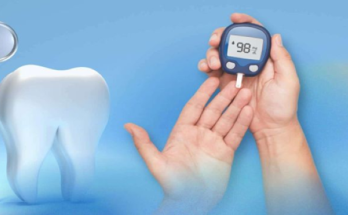For many people, the fear of gaining weight can discourage them from starting medication that could transform their quality of life. By separating facts from misconceptions, it’s possible to approach treatment with clarity and confidence.
Understanding Antidepressants and Weight
Antidepressants work by balancing brain chemicals that affect mood, appetite, and sleep. For many people, these medications are life-changing, but they can also influence metabolism and hunger. Weight changes don’t affect everyone, as some may gain weight, others may lose it, and many notice no difference at all. Factors such as the type of antidepressant, length of treatment, lifestyle, and diet all play a role. It’s also important to remember that depression itself can change appetite and weight, so shifts are not always caused by the medication.
Different classes of antidepressants can influence weight in various ways:
- Selective Serotonin Reuptake Inhibitors (SSRIs): These are the most commonly prescribed antidepressants. While some, like fluoxetine, may initially suppress appetite, others, such as paroxetine, are more likely to be linked with weight gain over time.
- Serotonin and Norepinephrine Reuptake Inhibitors (SNRIs): Generally considered weight-neutral, though individual responses vary.
- Tricyclic Antidepressants (TCAs) and Monoamine Oxidase Inhibitors (MAOIs): These older medications are more strongly associated with weight gain.
- Atypical Antidepressants: Some, like bupropion, have been linked to weight loss, while others may cause weight gain.
This variation is why treatment must always be individualised under medical supervision.
Why Weight Gain Happens
Weight gain on antidepressants is usually the result of several factors working together rather than a single cause. As mood improves, appetite often returns, leading to increased food intake. Some medications may slow metabolism or trigger hormonal changes that affect hunger signals, while others can spark cravings for sugary or carbohydrate-rich foods. At the same time, lingering fatigue or reduced physical activity linked to depression can make weight gain more likely.
The Health Impact of Weight Gain
Although a few extra kilograms may not feel concerning at first, ongoing weight gain can raise the risk of chronic conditions such as high blood pressure, high cholesterol, type 2 diabetes, and heart disease. Beyond the physical impact, changes in body image and self-esteem can worsen existing mental health struggles, creating a problematic cycle that often requires the proper support to break.
Managing Weight While Taking Antidepressants
The good news is that weight gain doesn’t have to be inevitable, and it certainly doesn’t mean stopping treatment. Here are practical ways to manage it:
- Always talk to your healthcare provider about side effects. Do not stop taking medication without guidance, as this can cause withdrawal symptoms or relapse.
- Prioritise whole foods such as fruits, vegetables, whole grains, lean proteins, and healthy fats. These keep you fuller for longer and support overall health.
- Regular exercise helps burn calories, boost metabolism, and improve mood. Even light activity, such as walking, stretching, or yoga, can make a difference.
- Depression and certain medications can disrupt fullness signals. Using smaller plates, avoiding mindless snacking, and slowing down during meals can help.
- Keeping a journal of weight, appetite, and mood changes can help identify patterns and guide discussions with your doctor.
- If weight gain is significant, your doctor may recommend adjusting the dose or switching to another medication.
Reducing the Stigma
The belief that antidepressants always cause weight gain is a harmful myth. Stigma already prevents many people from seeking mental health treatment, and added fears about weight can make the hesitation even greater. In reality, not everyone experiences weight changes, and when they do occur, they can usually be managed. Most importantly, the benefits of improved mental health far outweigh potential side effects, especially when both physical and emotional well-being are cared for together.
The Bigger Picture
Antidepressants are just one part of a holistic treatment plan for mental health, alongside therapy, lifestyle changes, community support, and self-care. Medication can provide the stability needed to engage with these tools effectively, and Affinity Health supports this journey by giving members access to doctors, telehealth consultations, and a nationwide healthcare network to manage both mental and physical well-being.




